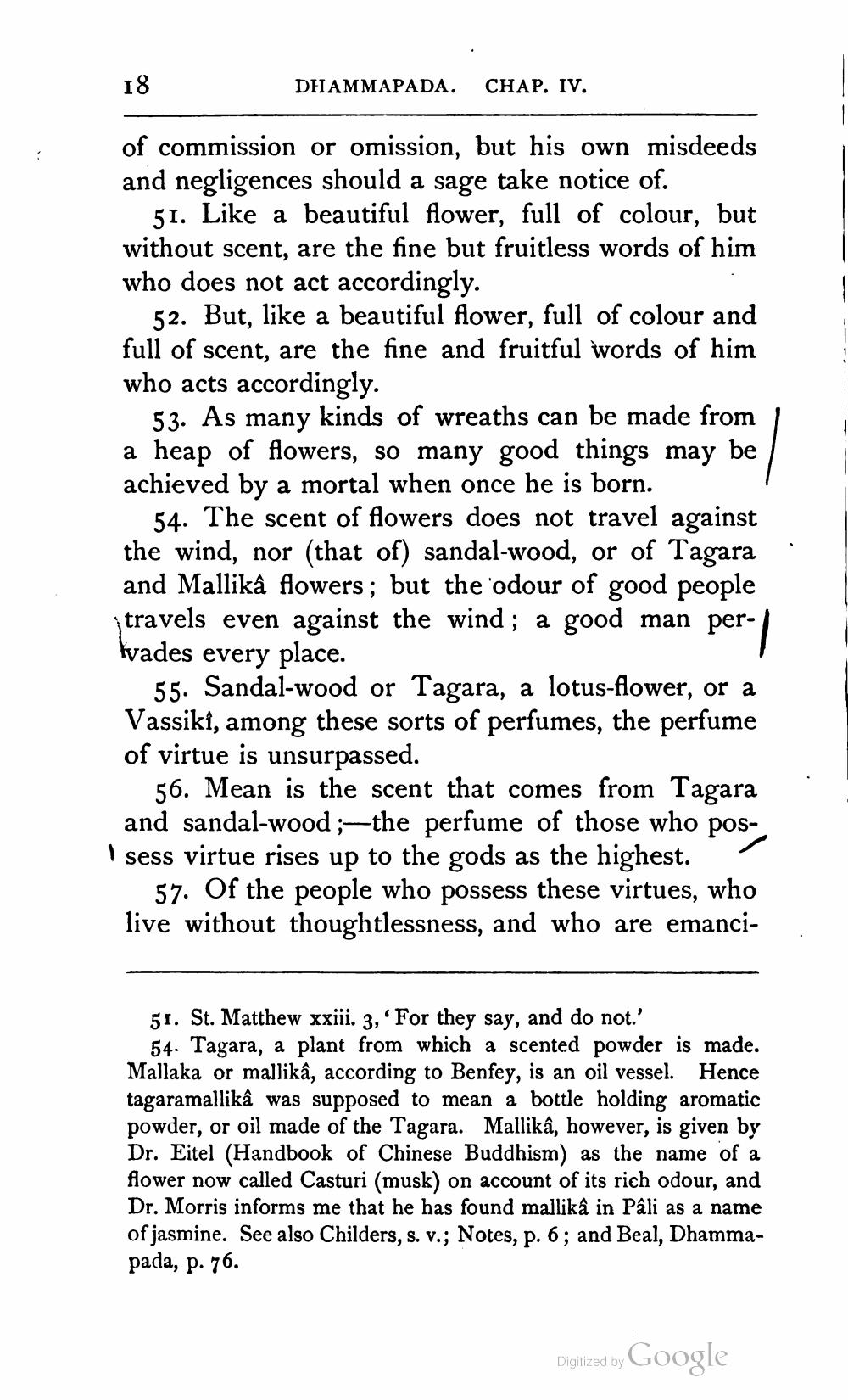________________
18
DHAMMAPADA. CHAP. IV.
of commission or omission, but his own misdeeds and negligences should a sage take notice of.
51. Like a beautiful flower, full of colour, but without scent, are the fine but fruitless words of him who does not act accordingly.
52. But, like a beautiful flower, full of colour and full of scent, are the fine and fruitful words of him who acts accordingly.
53. As many kinds of wreaths can be made from a heap of flowers, so many good things may be achieved by a mortal when once he is born.
54. The scent of flowers does not travel against the wind, nor (that of) sandal-wood, or of Tagara and Mallikâ flowers; but the 'odour of good people itravels even against the wind; a good man perIvades every place.
55. Sandal-wood or Tagara, a lotus-flower, or a Vassiki, among these sorts of perfumes, the perfume of virtue is unsurpassed.
56. Mean is the scent that comes from Tagara and sandal-wood ;-the perfume of those who possess virtue rises up to the gods as the highest.
57. Of the people who possess these virtues, who live without thoughtlessness, and who are emanci
51. St. Matthew xxiii. 3, 'For they say, and do not.'
54. Tagara, a plant from which a scented powder is made. Mallaka or mallikâ, according to Benfey, is an oil vessel. Hence tagaramallikâ was supposed to mean a bottle holding aromatic powder, or oil made of the Tagara. Mallikâ, however, is given by Dr. Eitel (Handbook of Chinese Buddhism) as the name of a flower now called Casturi (musk) on account of its rich odour, and Dr. Morris informs me that he has found mallikâ in Pâli as a name of jasmine. See also Childers, s. v.; Notes, p. 6; and Beal, Dhammapada, p. 76.
Digitized by Google




